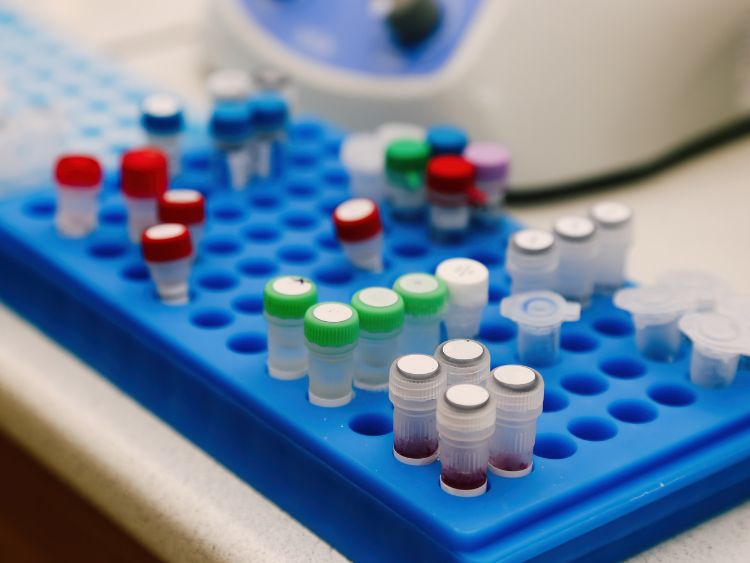Ever wondered what makes you, well, you? It’s all in your DNA! With the advent of modern science, we now have incredible tools to peer into our genetic makeup. One such tool is WES genetic testing. But what exactly is WES genetic testing, and how can it benefit you? Stick around, and we’ll unravel this fascinating topic together!
What is WES Genetic Testing?
Whole Exome Sequencing (WES) genetic testing is a revolutionary technology that decodes the exome, which comprises all the protein-coding regions of genes in our DNA. The exome represents only about 1% of the entire genome, but it contains about 85% of known disease-related genetic variants. So, WES provides a detailed look at the most crucial parts of our genetic code.
Why is WES Important?
WES genetic testing is a game-changer in diagnosing and understanding genetic disorders. Unlike traditional genetic tests that focus on one or a few genes, WES examines thousands of genes simultaneously, offering a comprehensive picture of your genetic health.
The Process of WES Genetic Testing
- Sample Collection: Typically, a blood or saliva sample is collected.
- DNA Extraction: DNA is extracted from the sample.
- Sequencing: The exome is sequenced using high-throughput sequencing technology.
- Data Analysis: The sequence data is analyzed to identify genetic variants.
- Interpretation: A geneticist interprets the results and provides a report.
Benefits of WES Genetic Testing
Early Diagnosis and Treatment
One of the primary benefits of WES genetic testing is early diagnosis. By identifying genetic mutations early, healthcare providers can intervene sooner, potentially improving patient outcomes.
Personalized Medicine
WES genetic testing paves the way for personalized medicine. Treatments can be tailored based on an individual’s genetic makeup, increasing the efficacy and reducing side effects.
Family Planning
For couples planning a family, WES can identify carrier status for various genetic conditions, aiding in informed family planning decisions.
Research and Development
WES plays a crucial role in medical research, helping scientists understand the genetic basis of diseases and develop new treatments.
Applications of WES Genetic Testing
Diagnosing Rare Genetic Disorders
WES is particularly useful in diagnosing rare genetic disorders that are difficult to pinpoint with standard genetic tests.
Cancer Genomics
WES can identify mutations in cancer-related genes, guiding targeted therapies and personalized treatment plans.
Pharmacogenomics
Understanding how genetic variations affect drug response can help doctors prescribe the most effective medications with the fewest side effects.
Challenges and Limitations
Data Interpretation
Interpreting WES data is complex and requires specialized knowledge. Not all genetic variants are well understood, and distinguishing between benign and pathogenic variants can be challenging.
Ethical Considerations
WES genetic testing raises ethical questions about privacy, consent, and the potential for genetic discrimination. It’s crucial to address these issues to ensure responsible use of genetic information.
Cost
Although the cost of WES has decreased significantly, it can still be prohibitive for some individuals and healthcare systems.
FAQs
What is the difference between WES and WGS (Whole Genome Sequencing)?
WES focuses on sequencing the exome, the protein-coding regions of the genome, whereas WGS sequences the entire genome, including non-coding regions. WES is often more cost-effective and sufficient for identifying many genetic disorders.
How long does it take to get results from WES genetic testing?
The turnaround time for WES results can vary but typically ranges from a few weeks to a few months, depending on the laboratory and the complexity of the analysis.
Is WES genetic testing covered by insurance?
Coverage for WES genetic testing varies by insurance provider and the specific circumstances of the test. It’s essential to check with your insurance company to determine coverage.
Can WES genetic testing be done at any age?
Yes, WES genetic testing can be performed at any age, from newborns to adults, depending on the clinical indications.
How accurate is WES genetic testing?
WES is highly accurate for detecting genetic variants in the exome. However, like all tests, it has limitations and may not detect all types of genetic mutations.
Summary
WES genetic testing is a powerful tool that provides invaluable insights into our genetic makeup. From diagnosing rare genetic disorders to guiding personalized medicine, its applications are vast and transformative. While there are challenges and ethical considerations to navigate, the benefits of WES genetic testing are undeniable. As we continue to advance in the field of genetics, WES will undoubtedly play a crucial role in shaping the future of healthcare.
Authoritative Links
- National Institutes of Health (NIH): https://www.nih.gov
- Genetic and Rare Diseases Information Center (GARD): https://rarediseases.info.nih.gov
- American Society of Human Genetics (ASHG): https://www.ashg.org
- Genetics Home Reference: https://ghr.nlm.nih.gov
- National Center for Biotechnology Information (NCBI): https://www.ncbi.nlm.nih.gov
